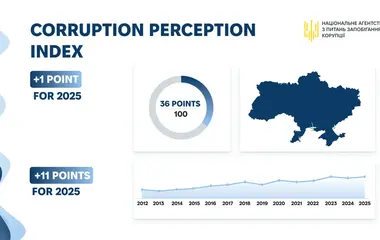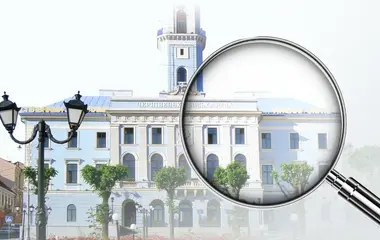Since 2021, the State Tax Service of Ukraine (STS) has been operating as a single legal entity consisting of a central office and territorial bodies established as its separate subdivisions (without legal entity status). Each territorial body of the STS has anti-corruption units that prevent and detect corruption in accordance with the Law of Ukraine ‘On Prevention of Corruption’. However, under the decentralised model of operation, these units face a number of problems, namely the lack of a unified approach to anti-corruption activities and the risk of influence of the management of the territorial body on their independence.
At the same time, according to the National Revenue Strategy until 2030, one of the tasks of the State Tax Service is to ensure the independence of anti-corruption units and introduce an effective anti-corruption system.
On 25 March 2025, the Cabinet of Ministers of Ukraine adopted a resolution that provides for the launch of a two-year pilot project to centralise anti-corruption activities. A single authorised unit for the prevention and detection of corruption will be established at the State Tax Service. According to the authors of the initiative, this will ensure a unified approach to anti-corruption work in the STS and increase its effectiveness at the national level.
The unification of anti-corruption functions should reduce the risks of conflicts of interest and ensure the independence of the unit, as well as make more efficient use of resources, reduce administrative costs and introduce uniform standards for preventing corruption in all units of the State Tax Service. The newly created unit will be accountable to and controlled by the Head of the STS, who must ensure the independence of the single authorised unit, primarily from influence or interference in its work on the ground.
The effectiveness of anti-corruption activities in the STS should be enhanced by consolidating all anti-corruption functions in a central unit, as this will ensure clear management, and centralised management will allow for faster decision-making and response to violations. Reporting only to the Head of the STS reduces the risk of local management influencing the activities of the unit, while protection from external pressure contributes to the objective conduct of inspections and investigations. Uniform standards for all STS units will ensure the same quality and transparency of inspections in each region and reduce the risk of errors and bias.
The Ministry of Finance is the coordinator of the pilot project. The project participants are the State Tax Service, its territorial bodies and the National Agency on Corruption Prevention (NACP). The NACP will provide methodological support, coordination and analysis of the effectiveness of the new unit.
"In short, this is an experiment to show whether we can break the control and dependence of regional commissioners on their superiors. NACP should move to closer coordination and methodological cooperation with the commissioners during the experiment. If there is a result, this will give impetus to legislative changes in the institution of commissioners and a change in our approaches to cooperation with commissioners, ' said Deputy Head of the National Agency on Corruption Prevention Serhii Hupiak.
The project will be financed from the state budget. The staffing of the unit will be determined in accordance with the minimum number of anti-corruption units in government agencies approved by the NACP. Upon completion of the experiment, the STS will submit a report to the Ministry of Finance, and the Ministry of Finance will submit a report to the Government. If the project is successful, it is possible to amend the legislation based on the results of its implementation. The expected results of the project are to increase the level of transparency and integrity in the work of the STS, strengthen the prevention of corruption in the tax authorities, and strengthen taxpayers' trust in the STS. Effective implementation of the project may become the basis for reforming the institution of anti-corruption commissioners and increasing guarantees of their independence in the relevant state and local governments.









